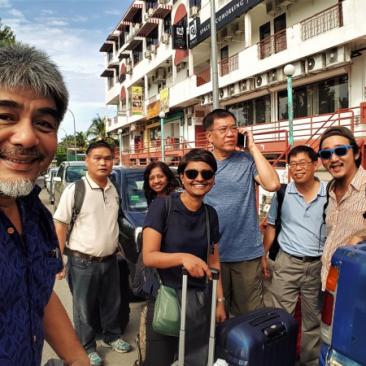The Malaysian Standards Development Group (SDG) convened three separate forums with stakeholders from Peninsular Malaysia, Sabah and Sarawak to gather their feedback and comments. The three meetings were quite different in the range of stakeholders who attended. The meeting in Petaling Jaya had a strong representation from certification bodies, while in Kota Kinabalu license holders and forest managers were prominent. In Kuching, social and community representation was strong. These differences are a reflection of the unique conditions in Malaysia, a country with three very different regions.
In total, 73 stakeholders from forestry departments, companies, timber industry associations, social and environment NGOs, Indigenous Peoples’ organizations, workers’ unions, certification bodies, universities and consultants attended the 3 sessions.
In summary, the key issues that emerged were FSC’s forest conversion rule, the 1994 cut-off date for plantations, the application of Scale, Intensity and Risk (SIR), Free, Prior and Informed Consent (FPIC) and High Conservation Value (HCV) concepts, International Labour Organization (ILO) requirements, and Indigenous Peoples’ and local communities’ land rights.
Once the 60-day consultation concludes in May, the draft Malaysian NFSS will then be revised and subsequently forest-tested. The final revisions will be taken back to the Malaysian public before being submitted to FSC International.
Stakeholders are reminded that the current public consultation period is ongoing until 17 May 2017 and FSC Malaysia welcomes additional feedback on the draft national standards. Further details and relevant documents are available here.

The Malaysian SDG on the road.

